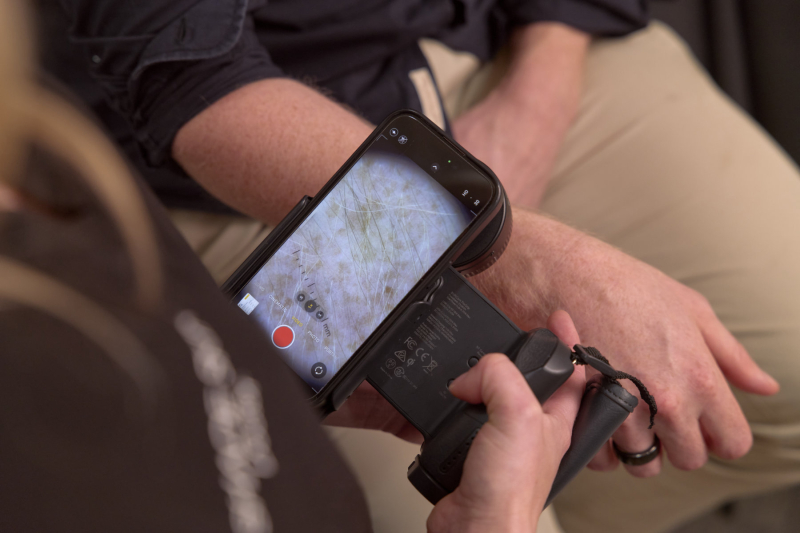Over the last few years, Headway Psychology has been dedicated to providing high quality psychological therapy for injured or stressed workers accessing services through the workers’ compensation system. Headway’s Holistic Program integrates psychological intervention with exercise physiology and dietetics to address both psychological and physical impacts of an injury, with the goal to improve overall functioning.
When a person is injured, a lot can change. Whether the injury is a strained muscle, a broken bone, or a trauma, the impact is much more than having to spend some time away from work.
Take the following example – Kate, a middle-aged woman working at a medical clinic, lives an active lifestyle; working four days a week, going to the gym most evenings and enjoying regular outings with her grandchildren. She lives with her husband, and spends her leisure time baking, gardening or walking along the beach. One day, while performing her usual duties at work, she trips and injures a ligament in her knee. She is immediately unable to walk or stand for long periods of time and consequently has to take time off work to recover. She is no longer able to go to the gym or enjoy her beach walks and cannot drive due to the pain and reduced strength. Unable to independently take her grandchildren out or meet up with her friends, Kate’s social connections dwindle. Her hobbies become physically difficult, and she starts to lose motivation to engage in them. Her previously independent and active lifestyle suddenly looks very different. She relies on her family members to take her out, uses walking aids to move around her home, and in near-constant pain, finds herself choosing to spend most of her time in bed. Internally, she starts to feel lonely, bored and anxious. No longer able to do all the things that made her feel like ‘her’, Kate questions her identity. She worries about possible hazards which could cause another injury and becomes scared to leave her house. Unable to exercise the way she used to, her mood declines, and she worries about weight-gain. She struggles to engage in recommended physical activity – both due to her anxiety around re-injuring, and due to the impact of her low mood on her motivation levels. This hinders her recovery, keeping her stuck.
Whether an injury is physical or psychological, psychological intervention can have an important role in helping a client adjust to life after injury, engage in recovery-oriented actions, and return to work.
Physical Injury
Common physical injuries sustained at work include; strains, sprains, fractures, broken bones, spinal injuries, repetitive strain injuries, lacerations, burns, eye injuries, head injuries and respiratory conditions. Physical injuries can result from manual handling or machinery accidents, motor vehicle accidents, slips and falls, or prolonged exposure to harmful environments or repetitive tasks.
Physical injuries will typically have an impact on a worker’s mental wellbeing, especially if the injury results in chronic pain, changes in functioning, or extended time away from work or usual activities. People may have difficulty adjusting to physical limitations or lifestyle changes, or struggle to cope with uncertainty around their treatment and recovery. For many people, work is an important part of their identity, and time away can be disruptive to their sense of self.
Psychological Injury
Safe work Australia defines a psychological injury as “a range of cognitive, emotional and behavioural symptoms that interfere with a worker’s life and can significantly affect how they feel, think, behave and interact with others.” A psychological injury is compensable if it arises from or occurs within the course of employment. Common psychological injuries we see within the workers’ compensation system include:
Acute stress disorder. This disorder can develop following exposure to actual or threatened death, serious injury or sexual violation (either directly or vicariously). Symptoms can include intrusive thoughts or memories of the event, avoidance of reminders of the event, hypervigilance, and negative mood. This presentation is known as acute stress disorder if the symptoms last at least three days and up to one month following the incident. If symptoms persist, the person may be presenting with post-traumatic stress disorder (PTSD).
Post-traumatic stress disorder (PTSD). This disorder can develop following exposure to a traumatic event, that is, actual or threatened death, serious injury or sexual violation. PTSD pertains to symptoms which have lasted over a month, including intrusive thoughts or memories of the event, avoidance of reminders of the event, hypervigilance, and negative changes in mood and/or beliefs.
Adjustment disorder. This disorder can develop in response to a stressful event, situation or change. Symptoms include feelings of depression or anxiety, or negative changes in behaviour, developing within three months of the event/situation. In the workers’ compensation system, we often see clients who develop adjustment disorder in response to the lifestyle changes that come with a physical injury.
Some common ways that psychological injuries can develop in the workplace include:
- Physical injuries. Sustaining a physical injury at work, and the ensuing lifestyle changes, can lead to adjustment difficulties and acute stress responses.
- Work-related stress. This could be due to heavy workloads, inadequate support at work, unrealistic deadlines/expectations, or poor work-life balance. High levels of stress can impact performance, mood, concentration and sleep.
- Bullying and harassment. This can lead to a worker feeling unsafe in their workplace, or impact their confidence, mood or self-esteem.
- Exposure to traumatic events. This is especially relevant among first responders and healthcare workers. Trauma or acute stress reactions can develop from witnessing traumatic events.
- Occupational burnout. This can occur in highly stressful or demanding professions, where the worker is not adequately supported or resourced to manage the demands of the role.
- Vicarious trauma or compassion fatigue. This can develop in professions where workers are repeatedly exposed to details about distressing events or circumstances, including mental health/social services or legal professions.
Psychological injuries can impact physical wellbeing in many ways; disrupting sleep, increasing muscle tension, affecting appetite and gut health, and weakening the immune system. Stress and fatigue can also hinder or delay recovery from physical injuries. The reciprocal relationship between physical and psychological wellbeing highlights the importance of holistic and coordinated care.
Headway’s Approach
Our minds reside in our bodies. Healing from any injury is enhanced if we can tackle it from all angles, working with our client’s physical wellbeing alongside their mental health. Headway’s Holistic Program integrates psychological care, dietetics and exercise physiology to provide comprehensive treatment that optimises client outcomes.
Physical activity is well documented to have a significant impact on mental health and wellbeing; improving mood, energy levels and concentration, and reducing stress and anxiety. Our exercise physiologist, Sarah Penter, works with clients to incorporate movement and exercise into their daily lives, within the scope of their injury.
We have two dietitians on our team, Hayley Parker and Robyn Bache. Our dietitians work with clients to implement sustainable, positive dietary changes, with the goal of improving functioning and wellbeing. When you consider that 90%-95% percent of serotonin – our body’s main ‘feel-good’ chemical – is produced in our gut, it makes sense that nutrition has a huge impact on mood. In fact, having a balanced and nutritious diet reduces a person’s risk of depression by 60%.
So, going back to the example at the start – what could we do for Kate?
One of our psychologists would work with Kate to identify and modify the thoughts and behaviours which keep her anxiety and low mood going. She would be taught about how inactivity maintains low mood, and avoidance maintains anxiety. Kate would be encouraged to challenge her worrying thoughts, and gradually face her fears until she overcomes them. Kate and her psychologist would work together to identify new social or leisure activities which could bring her joy and purpose, or to modify her hobbies so she is able to enjoy them during her recovery.
Our exercise physiologist would help Kate to implement movement and physical activity in a way that’s enjoyable, realistic and conducive with her recovery. She would also work with Kate on her motivation to engage in the exercises recommended by her physiotherapist, getting her back on her feet and ready to return to work sooner.
One of our dietitians would provide education and support around balanced and sustainable nutrition. This could involve challenging unhelpful beliefs about weight-gain, and teaching Kate to nourish her body in a way that lifts her mood, energises her, and offsets the physiological effects of anxiety.
At Headway, we aren’t just trying to get our clients back to work – we’re helping them to restore meaning and fulfillment in their lives. By addressing wellbeing holistically, our team can empower clients to regain confidence, connection and control, and return to work with resilience. With the right support, recovery becomes not just possible, but sustainable.



